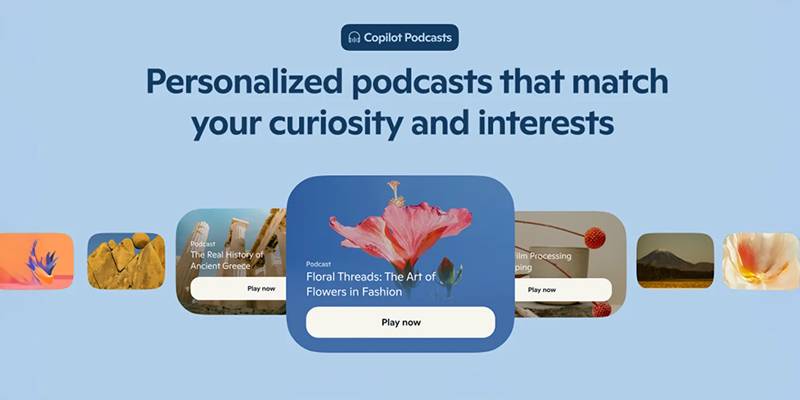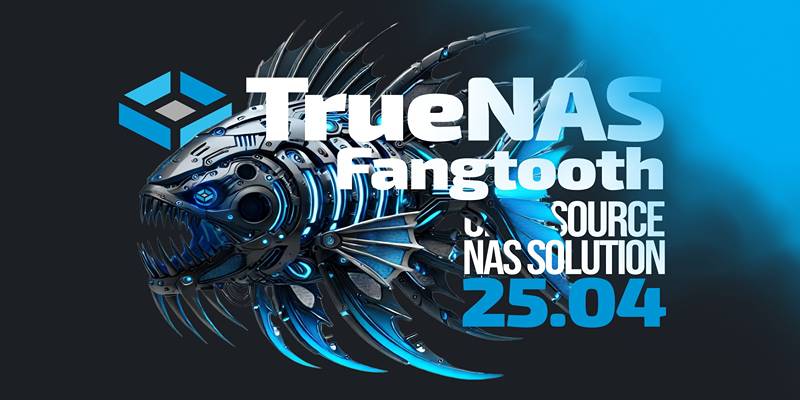Microsoft is advancing its Copilot framework with a new experimental feature that leverages artificial intelligence to create podcast-style audio content. The company is currently testing an AI-generated podcast tool capable of producing dialogue-based audio on virtually any topic. This functionality forms part of Microsoft's broader push into multimodal generative AI, integrating text and image generation, and now audio.
This innovation allows users to prompt Copilot with a subject or theme, after which the AI constructs a realistic, multi-voice podcast conversation. With this feature, Microsoft enters the realm of voice-first media generation, offering a highly scalable and personalized way for users to engage with spoken content tailored to their interests.
What the Copilot Podcast Feature Offers?

The new podcast feature under Copilot is designed to simulate natural conversations between multiple AI-generated voices, creating content that mirrors professionally produced podcasts. The intent is to allow users to quickly access dynamic, spoken content without requiring human hosts or production teams.
The feature currently includes the following core capabilities:
- Dynamic Topic Customization: Users can generate podcast discussions on virtually any topic of interest, from technology trends and historical events to lifestyle, education, or niche hobbies. The AI is trained to understand the subject and construct relevant, structured dialogue without repetition or factual drift.
- Simulated Multi-Voice Interaction: The AI generates natural back-and-forth conversations between two or more virtual hosts. These hosts can express differing viewpoints, clarify ideas, and provide follow-ups that mimic real human dialogue, improving engagement and depth.
- Voice Personalization and Style Variation: Microsoft is exploring options for users to modify voice tones, speeds, and accents. Users may also choose the tone of the conversation, whether formal and educational, casual and humorous, or analytical and structured, allowing for various audio experiences.
- Adjustable Duration and Format: The system can produce content based on time constraints defined by the user. Whether the goal is a five-minute summary or a 30-minute deep dive, Copilot adapts the discussion length and complexity to suit the listening context.
- Live and Unique Output: Each episode is unique since the content is generated in real time. The same prompt used at different times may produce varied dialogues, ensuring that the user never hears the same episode twice.
Integration within the Microsoft Ecosystem
The podcast generation feature is built into the broader Copilot AI environment, which Microsoft has integrated into its major platforms, including Microsoft 365, Edge, Windows, and Teams. This move reinforces Microsoft’s commitment to transforming Copilot from a productivity assistant into a versatile AI engine capable of powering media, communication, and enterprise applications.
From a systems integration perspective, the Copilot podcast tool supports:
- Consistency Across Devices: The feature can operate across different user environments, such as desktop, web, and mobile, making it accessible wherever Copilot is active.
- Extension of AI Assistant Capabilities: Beyond automating tasks or summarizing documents, Copilot now supports content creation in audio, allowing Microsoft to compete in domains previously dominated by voice AI and media automation startups.
- Seamless Workflow Connectivity: In the future, podcast outputs may be embedded directly into collaborative apps like Teams or Outlook, enabling AI-generated episodes to accompany meeting summaries, onboarding documentation, or internal updates.
Technical Architecture Behind the Feature
Microsoft’s development of the Copilot podcast tool draws upon advancements in multiple branches of artificial intelligence. These include generative language models, text-to-speech technology, and conversational AI frameworks capable of handling multi-turn dialogue generation.
The following technologies contribute to the podcast feature's functionality:
- Large Language Models (LLMs): These models understand context, maintain dialogue continuity, and generate logically coherent speech based on user-defined topics and tones.
- Neural Voice Synthesis: Microsoft employs neural text-to-speech technology that delivers humanlike voice performance, with inflection, emotion, and natural pacing tailored to each speaker’s personality and conversational role.
- Coordinated Dialogue Engine: The system orchestrates the structure and timing of multi-speaker conversations, managing turn-taking, topic transitions, and content balancing to avoid overlap or redundancy.
- Real-Time Topic Interpretation: The tool adapts to new or niche subject matter by referencing internal knowledge graphs and context libraries, which allows it to generate accurate, relevant responses even for less common queries.
Ethical Challenges and Mitigation Strategies

Microsoft’s Copilot podcast tool introduces critical ethical considerations, as with any generative AI technology. From voice cloning and misinformation to content moderation, Microsoft must implement strict controls before broader deployment.
The primary concerns and expected safeguards include:
- Transparency and Disclosure: AI-generated content must be clearly labeled so listeners do not believe real individuals create the episodes.
- Content Integrity and Misinformation Prevention: Microsoft must implement knowledge validation layers to prevent AI from generating false or harmful content, especially for sensitive topics.
- Voice Ethics and Impersonation Prevention: Synthetic voices should be generic or customizable within safe parameters, avoiding replication of real individuals' speech patterns or tones.
Broader Industry Impact and Competitive Landscape
Microsoft’s Copilot podcast feature could disrupt multiple categories, including podcasting platforms, content creation tools, and voice AI products if brought to market. Its potential to generate infinite personalized audio content offers scalability unmatched by traditional production models.
Industry implications include:
- Democratization of Podcast Creation: Anyone can become a podcast producer without microphones, scripts, or audio editing tools, lowering entry barriers significantly.
- Pressure on Audio Platforms: Existing podcast networks may need to adapt their discovery and recommendation systems to accommodate AI-generated episodes and formats.
- Expansion of AI Content Ecosystems: Tech giants like Google, Apple, and Amazon may accelerate their efforts in generative audio to remain competitive, possibly integrating similar features into their ecosystems.
Conclusion
Microsoft’s Copilot podcast feature signals a significant evolution in AI-driven content generation. By enabling users to create AI-generated audio conversations across any topic, the company is extending the reach of Copilot from productivity enhancement to full-scale media creation.
This innovation can reshape how organizations communicate, educators teach, and individuals consume information. As the feature matures, it could become a vital tool for accessible, scalable, and customizable audio content—all powered by artificial intelligence.







